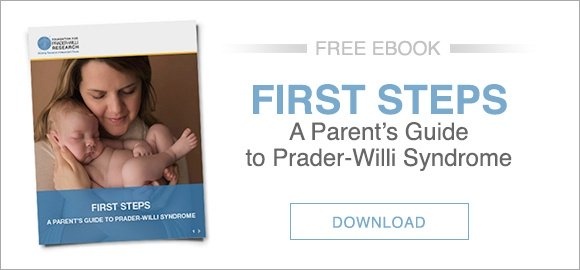FPWR, along with Dr. Jennifer Miller and Janalee Heinemann, Director of Research and Medical Affairs, Prader-Willi Syndrome Association (USA), would like to share a reminder with families:
FIRST, DO NO HARM… AN INTERNET WARNING
Janalee Heinemann, MSW [PWSA(USA)], Jennifer Miller, MD [University of Florida], Theresa Strong, PhD [FPWR]
The Internet has proven a valuable place to learn about PWS, share experiences, and find out what other parents are doing to manage their child’s health. However, applying information gathered over the Internet to you child’s medical care can end tragically if the proper precautions aren’t taken. Here are some suggestions:
Know Your Sources: When considering advice about medicines, supplements, or diets, consider the qualifications of the person or website providing the information. For individuals, what is their education, training and/or experience? For those giving medical advice, are they licensed, active in their field and well respected by colleagues? For organizations, where are they drawing the information from and are there any conflicts of interest (for example, could they benefit from the sale of a related product)?The Genetic Alliance has a “Trust It or Trash It” tool that’s a good resource to help you weigh the quality of Internet materials. Some examples:
- - Think about TRUSTING IT if: The medical information is based on research of many people.
- Think about TRASHING IT if: The information is based only on someone’s opinion or individual experience.
Look for Clinical Trials: Medical interventions (e.g., medicine, supplements, diet) might seem logical on paper and may be reported as beneficial by one or a few individuals, but until well designed clinical trials are performed, the safety and effectiveness of any intervention is unclear. Unexpected safety issues may arise, or it may turn out that anecdotal findings don’t hold up when evaluated in a rigorous clinical trial. Ideally, decisions will be guided by the results of clinical studies published in peer-reviewed medical journals.Information about clinical studies can be found at http://clinicaltrials.gov/ or in the medical literature
Inform Your Doctor: To properly care for your child, it’s critical that your doctor have a clear overall picture of all aspects of your child’s health. Thus, he/she needs to be fully informed of medications, supplements and dietary interventions you are doing or would like to consider. Any changes should be discussed ahead of time, so you can fully understand the risks and benefits in the context of your child’s health. If you are uncertain or don’t agree with your doctor’s recommendation or plan, seek a second opinion from a qualified medical professional.
Take Care with Supplements: Keep in mind that the Food and Drug Administration (FDA) does not regulate supplements in the same way as it does drugs. FDA approved drugs undergo a rigorous review process to demonstrate safety and efficacy. In contrast, there are no requirements for manufacturers of supplements to demonstrate either safety or efficacy prior to marketing. Some supplements can be toxic if given when not necessary or in too high of doses. In addition, while FDA approved drugs undergo strict quality control to ensure lot-to-lot consistency, there is no formal oversight process to test the composition of supplements and ensure that it matches the label. Independent testing sites, such as ConsumerLab.com, or the NIH Office of Dietary Supplements provide unbiased information about supplements.
Recommended Websites:
- - General Medical Information: WebMD, MedScape, MayoClinic, NIH MedlinePlus Medical Encyclopedia and University-based websites are usually good sources for general medical information.
- Prescription Drugs: The US National Library of Medicine Drug Information Portal








